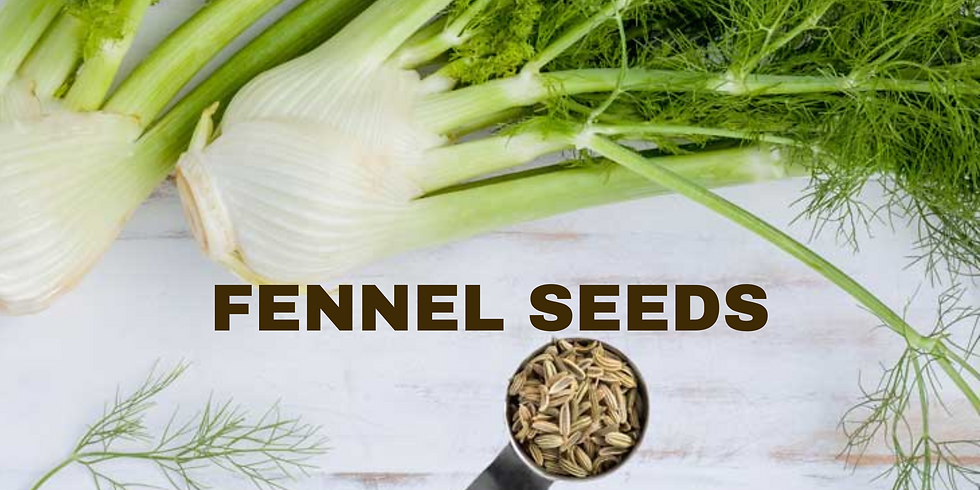Fenugreek, Moringa and Fennel Herbs for Weight Loss, Hair Growth and Radiant Skin

A three part series focusing on three ancient herbal medicines that have been used for thousands of years; combatting various illnesses, promoting healthy body functions, beautiful hair and flawless skin.
Last week we looked at Fenugreek plant, click here to read the first post in the series.
This week we turn our attention to Fennel Seeds.
There is direct correlation between emerging and chronic diseases and artificial foods and medicines. We need to get back to our roots if we want to ensure our survival. A RENAISSANCE is necessary! Time for a re-birth.
Fennel Seeds
What is Fennel Seeds
Fennel is a member of the Apiaceae (carrot or parsley family) and is related to cumin, dill, caraway and anise, all of which bear aromatic fruits that are commonly called seeds. It is native to southern Europe but is now naturalized in northern Europe, Australia and North America and is cultivated around the world.
History
According to Herbsociety.org, Fennel is a herb with a history of medicinal, magical and culinary uses. Fennel was used by the ancient Egyptians as food and medicine, and was considered a snake bite remedy in ancient China. During the Middle Ages it was hung over doorways to drive away evil spirits. Fennel is also associated with the origin of the marathon. Ancient Athenian Pheidippides carried a fennel stalk on his 150 mile, 2 day run to Sparta to gather soldiers for the battle of Marathon with Persia in 490 B.C. The battle itself was also reportedly waged on a field of fennel.
Uses of Fennel Seeds
Fennel Seeds are low in calorie and flavorless which means they take on the aroma and taste of the foods they are prepared with and thus can be consumed whenever and however you please. Due to its nature of adaptability, Fennel herb is favored over Fenugreek.
There a several ways you can use Fennel Seeds in you cooking:
Salads
Breads
Soups and Stews
Curries
Pastas
Desserts
Roasted seeds themselves
Benefits
Highly nutritious - packed with nutrients; vitamin c, calcium, magnesium, iron, potassium and fiber
Contains antioxidants - potent antioxidants can lower the risk of chronic conditions; heart disease, obesity, cancer, neurological diseases, and type 2 diabetes
Suppress appetite - A study in 9 healthy women demonstrated that those who drank 8.5 ounces (250 ml) of tea made with 2 grams of Fennel Seeds before eating lunch felt significantly less hungry and consumed fewer calories during the meal
Heart health - packed with fiber. Diets high in fiber have been linked to reduced risk of heart disease
Cancer fighting properties - the wide array of powerful plant compounds in Fennel may help protect against certain cancers
Contains antibacterial properties - Fennel extract inhibits the growth of potentially harmful bacteria and yeasts
Improves mental health - Fennel extract may reduce aging-related memory deficits
Relieves menopausal symptoms - Fennel may improve sexual function and satisfaction in menopausal women, as well as relieve hot flashes, vaginal itching, dryness, pain during sex, and sleep disturbance
Strengthen your roots - Fennel Seeds can fight hair loss. The antioxidants and nutrients strengthen the roots of hair and give follicles some life
Glowing skin - Fennel Seeds serve your skin by providing various vitamins, which in turn give you a younger looking skin. Fennel tea, when consumed on a daily basis, helps in improving the overall texture of the skin as it treats acne and makes your skin look flawless and glowing
Precautions
Though Fennel Seeds are likely safe when eaten in moderation, there are some safety concerns over more concentrated sources, such as extracts and supplements. For example, Fennel has strong estrogenic properties, meaning that it acts similarly to the hormone estrogen. While this may help relieve menopausal symptoms, it may be unsafe for pregnant women.
My Experience
According to Herbsociety.com "persons suffering from conditions such as ovarian cancer, endometriosis or uterine fibroids or any such condition which can be impacted by estrogen or prolactin should avoid consuming the herb". Due to this warning, I do not orally consume Fennel Seeds.
For context purposes, two years ago I did an ultrasound and the Gynecologist found two small "non-threatening" fibroids on my uterus. With that being said, I avoid ingesting Fennel Seeds for my health and safety. However I do use the herb to stave off hair loss and to strengthen my roots.
Hair
Fennel Seeds, as previously stated, promotes hair growth and retention. The properties in the seeds make them an excellent source for those looking to retain length and improve damaged roots. For my hair routine, I soak 2tbsp of seeds in Argan and Grapeseed oil combined with Lavender and Rosemary essential oils. I keep the mixture in a spray bottle and use it on my roots every two days. On wash days, I use the mixture as a pre-poo where I coat my damp hair from root to tip and then cover with a plastic cap for 30 minutes to an hour. Wash and style as desired. I have been doing this for over a year and have seen tremendous results.
For those wanting to consume Fennel Seeds orally, my recommendation would be to blend the seeds and brew it as a tea. A magic bullet or powerful blender is sufficient enough to convert the seeds into powdered form. If that is too much work the option exists to buy the powdered form.
See you next week for series finale - Moringa Herb, my favorite out of the three.
Julz out!






Comments